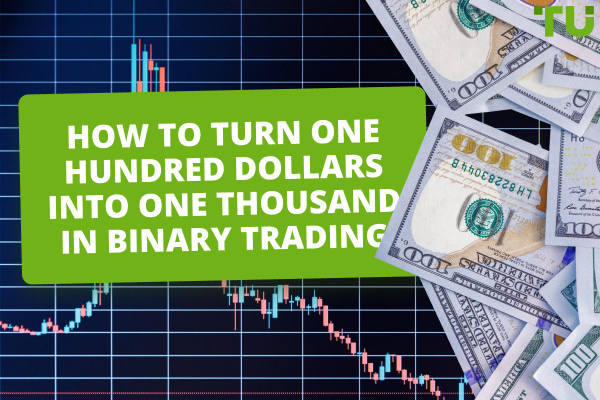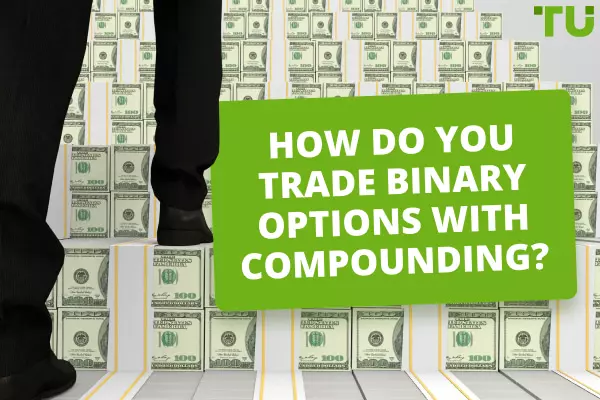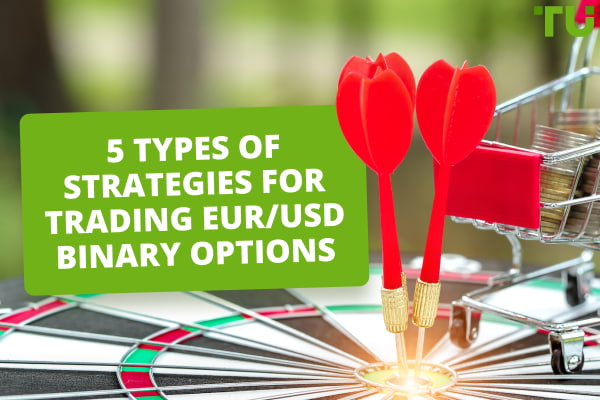How Does the Martingale Strategy in Binary Options Work?
The Martingale strategy is a popular betting and trading system employed in various gambling and financial markets, including binary options trading. It is based on the principle of doubling your investment after each losing trade in the hopes of eventually recovering all losses and making a profit.
In the binary options trading sector, traders use various strategies to maximize their profits and minimize losses. One such strategy is the Martingale, which has gained attention and controversy. In this article, we will dive into the Martingale strategy in binary options, how it works, its profitability, and its associated risks, and answer some frequently asked questions.
Essentially, the Martingale strategy in binary options is a betting system that involves doubling your investment after each losing trade. While it may seem like a foolproof way to recover losses, it comes with inherent risks and is not guaranteed to be profitable.
Start trading Binary Options right now with QUOTEX!What is the Martingale Strategy?
The Martingale strategy is a popular betting and trading system employed in various gambling and financial markets, including binary options trading. It is based on the principle of doubling your investment after each losing trade in the hopes of eventually recovering all losses and making a profit.
Here's how it typically works:
-
Initial Trade: You start with an initial investment amount of $100
-
Trade: If your first trade results in a loss, you double your investment in the next trade, which would be $200 in this case
-
Repeat: If the second trade also results in a loss, you double your investment again, making it $400 for the third trade
-
Continue: You continue this process until you have a winning trade, at which point you return to your initial investment amount
In other words, the idea behind the Martingale strategy is that, statistically, a winning trade will eventually occur. When it does, it should cover the previous losses and result in a net profit.
Is Martingale allowed in binary options?
Yes, the Martingale strategy is typically allowed in binary options trading. Binary options platforms generally do not impose restrictions on specific trading strategies that traders can employ. This means that you are free to use the Martingale strategy and any other trading strategies you deem suitable for your objectives.
However, it's crucial to remember that while it may be allowed, using the Martingale strategy in binary options trading carries significant risks and may not be advisable for all traders due to its high-risk nature and potential for substantial capital losses. Before employing this method, you should carefully assess your risk tolerance and financial situation.
Is the Martingale strategy 100% profitable?
The Martingale strategy is far from being 100% profitable. To achieve 100% profitability with this strategy, one would need an infinite supply of capital, which is practically impossible.
Additionally, it's crucial to note that the Martingale strategy can only potentially work with assets like Forex, which do not have an absolute zero value. In financial markets, where asset prices can fluctuate significantly and are influenced by various factors, there is no guarantee that a losing streak will end in a way that allows the strategy to recover all losses and yield a profit.
Is Martingale strategy risky?
Yes, the Martingale strategy is inherently risky. In fact, they are multifaceted. First and foremost, it demands a substantial capital base to endure a potential string of losses. A series of consecutive losses can quickly deplete your funds as you double your investment.
Secondly, it lacks proper risk management techniques. Therefore, it may leave you exposed to significant losses without a safety net. Additionally, it can induce considerable stress due to the constant pressure of increasing investments, often leading to impulsive decision-making.
Moreover, the strategy hinges on the assumption that markets will eventually reverse in your favor, a prediction that is far from guaranteed given the unpredictable nature of financial markets. As a result, while the Martingale strategy may yield gains in the short term, it is widely regarded as a risky and unsustainable long-term approach to trading.
Top 3 binary options brokers
FAQs
Does Martingale work in trading?
The Martingale strategy can work in trading, but it is not foolproof. It carries significant risks and requires a substantial capital base to withstand potential losses.
What is the $10 Martingale strategy?
The $10 Martingale strategy is a variation of the Martingale strategy, where traders start with a $10 initial investment and double it after each losing trade. While the initial investment is lower, the same risks associated with the traditional Martingale strategy still apply.
How risky is Martingale in binary trading?
Martingale is very risky in binary trading. It can lead to rapid capital depletion and is not recommended for inexperienced traders or those with limited capital.
How profitable is Martingale?
The profitability of the Martingale strategy is not guaranteed. While it can be profitable in the short term, it is not a good long-term strategy due to the inherent risks involved.
Glossary for novice traders
-
1
Broker
A broker is a legal entity or individual that performs as an intermediary when making trades in the financial markets. Private investors cannot trade without a broker, since only brokers can execute trades on the exchanges.
-
2
Trading
Trading involves the act of buying and selling financial assets like stocks, currencies, or commodities with the intention of profiting from market price fluctuations. Traders employ various strategies, analysis techniques, and risk management practices to make informed decisions and optimize their chances of success in the financial markets.
-
3
Options trading
Options trading is a financial derivative strategy that involves the buying and selling of options contracts, which give traders the right (but not the obligation) to buy or sell an underlying asset at a specified price, known as the strike price, before or on a predetermined expiration date. There are two main types of options: call options, which allow the holder to buy the underlying asset, and put options, which allow the holder to sell the underlying asset.
-
4
Binary options trading
Binary options trading is a financial trading method where traders speculate on the price movement of various assets, such as stocks, currencies, or commodities, by predicting whether the price will rise or fall within a specified time frame, often as short as a few minutes. Unlike traditional trading, binary options have only two possible outcomes: a fixed payout if the trader's prediction is correct or a loss of the invested amount if the prediction is wrong.
-
5
Risk Management
Risk management is a risk management model that involves controlling potential losses while maximizing profits. The main risk management tools are stop loss, take profit, calculation of position volume taking into account leverage and pip value.
Team that worked on the article
Milko Trajcevski is a truly determined content writer with a passion for the crypto industry. He has a successful track record of researching and effectively writing articles about cryptocurrency, non-fungible tokens, and blockchain covering the fields of crypto-asset regulations, wallets and exchanges, liquidity, altcoins, DApps, forks, mining, laddering, security and enterprise blockchain technology.
Milko focuses on contributing fresh and interesting articles to the Traders Union website, with expertise within the crypto-writing space, and a dedication to service.
Dr. BJ Johnson is a PhD in English Language and an editor with over 15 years of experience. He earned his degree in English Language in the U.S and the UK. In 2020, Dr. Johnson joined the Traders Union team. Since then, he has created over 100 exclusive articles and edited over 300 articles of other authors.
Mirjan Hipolito is a journalist and news editor at Traders Union. She is an expert crypto writer with five years of experience in the financial markets. Her specialties are daily market news, price predictions, and Initial Coin Offerings (ICO).












